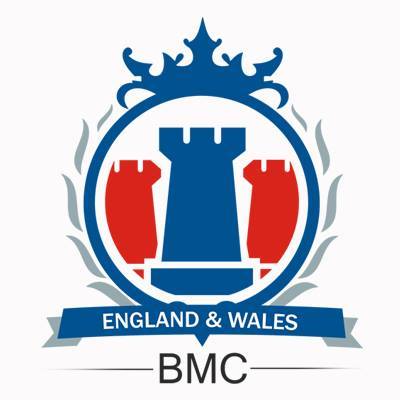The basic concepts of accounting and financial reporting disclosures and varying reconciling and non-reconciling differences between GAAP and IFRS

BMC Training provides a training course in International Financial Reporting Standards IFRS and Updates in Finance , Accounting and Budgeting.
The diminishing differences between generally accepted accounting principles (GAAP), principally established by the Financial Accounting Standards Board (FASB), and international financial reporting standards (IFRS), as established by the International Accounting Standards Board (IASB”, is narrowing at a faster pace. IFRS are now the world’s most widely accepted and applied accounting standards with more than 100 countries now requiring or permitting their use.
During this comprehensive programme participants will obtain an understanding of the following bodies of knowledge:
The basic concepts of accounting and financial reporting disclosures and varying reconciling and non-reconciling differences between GAAP and IFRS
The scope, structure, contents and components of IFRS compliant financial statements, including underlying assumptions and related footnotes disclosures
Measurement and recognition of the various elements of international accounting principles and standards, including transition concerns
Revenue recognition and financial reporting requirements
Objectives
As a result of completing this programme, all participants will improve their knowledge, understanding and analytical skills in terms of IFRS in terms of the following benefits:
Understanding the current and potential future requirements of IFRS, including the final prospects and timetable for the convergence of GAAP and IFRS
Applying standards in accordance with their requirements in terms of preparing IFRS compliant financial statements, including the selection of appropriate accounting policies and related footnote disclosures
Understanding the recognition and measurement principles as delineated within the IASB’s Framework and comprehending their application within each accounting standard
Defining and applying the transition process to IFRS and identifying the first-time exemption as well as exceptions relating to the financial statements of a transitioning organization
Examining accounting standards that either require or permit the use of fair value measurement (including comparisons to U.S. Financial Accounting Standards Nos. 157 and 159), determining fair value measurements and financial statement recognition issues and presentation
Contents
Day One
Evolution of International Accounting Standards
International Financial Reporting Standards (‘IFRS”)
Introduction, History and Overview of Existing and Future Standards
Roles of the Various Accounting Standards Setting Bodies
Objectives and Structure of the International Accounting Standards Board (“IASB”)
Framework, Demand and Adoption of IFRS
Convergence
Introduction and Historical Overview
Issues, Benefits and Problems of Convergence
IASB/FASB Projects
U.S. SEC Adoption Timeline and Activities
Day Two
Structural Framework for the Preparation and Presentation of Financial Statements
Purpose and Objectives, including Financial Statement Audit Impact
Scope, Structure and Content of IFRS Financial Statements
Accounting Policies and Underlying Assumptions
Components of Financial Statements, including Qualitative Characteristics
Measurement and Recognition of the Elements of Financial Statements
Transition Concerns and Transition Plan Elements
Day Three
Preparation and Presentation of IFRS Financial Statements
Structure and Content of Both General and Specific Elements of Financial Statements
IAS 1
Balance Sheet
Income Statement
Presenting Either a Statement of Changes In Equity or a Statement of Recognized Income or Expense (“SORIE”)
Statement of Cash Flow
Consolidation Criteria and Requirements
Notes to Financial Statements and Related Disclosures
Revenue Recognition and Reporting Requirements
Day Four
Conversion Preparation to IFRS
Examining Substantive Differences in Disparate Accounting Treatments
Inventory
Fixed Assets
Valuation
Revaluation
Depreciation
Deferred Taxes
Contingencies
Performing Thorough Assessments
Technical Accounting and Tax Implications and Risks
Supporting Established Processes and Infrastructure Considerations
Adopting Implementation Plans
Conversion Issues and Concerns
Technical Accounting and Tax Conversion Issues
Designing Supporting Processes and Infrastructure Features
Developing Revised Organization Plans and Change Strategies
Conversion Maintenance
Implementing Support Processes and Infrastructure Features
Change Management Execution Strategies
Conversion Transfers
Comparative Analysis of Companies Adopting or Not Adopting IFRS
Day Five
Impact of IFRS on Financial Statement Interpretations
International Accounting and Diversity Considerations
Financial Analysis Tools and Techniques
Common Size Statements
Trend Analysis
Ratio Analysis
Dupont Analysis
Z Scores
Investment Ratios
Cash Flow Ratios
Peer Group and Industry Comparisons
Importance of Corporate Governance and Awareness of IFRS Best Practices
Future IFRS Considerations
BMC Training and Development offers Management, Administration, Finance, Accounting, Budgeting, Human Resources, Public Relations, Health and Safety Training Courses in UK - London, Turkey - Istanbul and Malaysia - Kuala Lumpur. BMC Training and Development is considered as the best professional Training provider in Europe and Middle East.
BMC provides individuals and organizations worldwide with the knowledge, skills, and tools to achieve performance excellence, adapt to changing realities, and prosper in a complex and competitive world of globalization.
Each year thousands of clients learn new skills and behaviors, gain more confidence, advance their careers, and contribute to the success of their organizations. BMC offers a wide range of unique seminars, workshops, conferences, customized corporate programs, and consultancy services.
Companies today are constantly looking to do more with less in order to keep up with and outpace change and competition. Responsibilities may increase at a moment's notice and require ever-changing and improved skills.
That's why training has never been more critical for advancing careers and achieving organizational success. Ongoing learning enables participants to continuously enhance their professional and personal development and increase their value to their organizations.
BMC Training and Development has earned the reputation as a trusted partner in professional development and management education that improves immediate performance as well as provides long-term results for individuals and organizations.
© 2025 coursetakers.com All Rights Reserved. Terms and Conditions of use | Privacy Policy